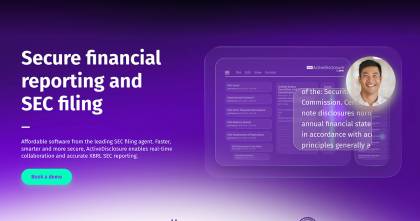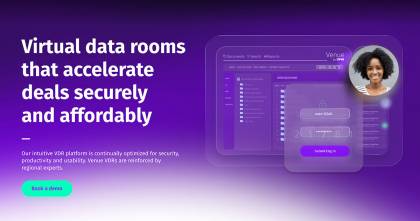As Cybersecurity Awareness season continues, we are shedding light on the importance of safeguarding financial data and information.
Whether your company is preparing for an acquisition or an IPO or filing the multitude of forms required by the U.S. Securities and Exchange Commission (SEC), the process of sending, disclosing, reporting, and filing sensitive financial information requires robust security at every step of the process.
Security measures help prevent unauthorized access to data, including modifications or manipulations that may distort data. Increasingly, these sensible measures incorporate financial reporting software and virtual data rooms (VDRs), which help companies not only maintain compliance with regulatory requirements but also safeguard their reputation, maintain investor, stakeholder, and customer trust, provide accurate insights for informed decision-making, and maintain business continuity.
Let’s look at three different scenarios that require a security mindset:
- IPOs. The next wave of IPOs will be led by the companies that do the hard work of preparation today. The successful transition from a private to a publicly traded company requires a range of highly sensitive legal, financial, operational, and regulatory documents that typically include financial statements, financial forms (including the S-1 registration statement), prospectus, corporate governance practices, and more. It is imperative to keep these forms secure. Learn more about IPO preparatory steps in this whitepaper: The Importance of IPO Readiness.
- Mergers and acquisitions (M&As). M&As involve sensitive forms and documents that are crucial to the success of the transaction and the protection of the parties involved. These forms include financial statements, contracts, intellectual property details, employee and customer information, legal agreements, and strategic plans. Maintaining strict security measures helps safeguard the interests of both the acquiring and acquired companies and instills confidence in stakeholders. DFIN’s M&A Deal Management Software is trusted globally by Fortune 1000 companies, Silicon Valley startups, PE firms, investment banks, and government agencies to expedite the deal-making process.
- SEC filings. To help uphold accountability in the financial markets, publicly traded companies are required to regularly file many financial documents with the SEC, including quarterly and annual reports (Form 10-Q, Form 10-K), and the latest: the disclosure of material cybersecurity incidents (Form 8-K). These regulatory filings provide investors and the public with essential information about a company's financial performance. To maintain the integrity of SEC filings — by preventing unauthorized access, tampering, or manipulation — it is critically important to keep the information secure every step of the way. (For more background on what SEC filings entail, visit What Is SEC Filing?)
Enter DFIN’s ActiveDisclosure, offering robust, secure real-time collaboration and accurate financial reporting. ActiveDisclosure embeds advanced security throughout the application — and also benefits from multiple cloud security features within Microsoft Azure. From document encryption at rest to information encryption in transit, from single sign-on (SSO) to identity access management, from dynamic application security testing to threat management, DFIN’s ActiveDisclosure ensures the integrity of client data and access through industry standards and best-in-class security provisioning.
To keep financial information and documentation — including M&A and IPO information —secure at every step, many companies rely on a VDR to upload and organize documents for the due diligence phase of the transactions. DFIN’s Venue is an intuitive virtual data room platform used by organizations to transmit sensitive data and share confidential documents with external parties, streamline collaboration among authorized stakeholders, and meet regulatory compliance. Extensive security features include multi-factor authentication, 256-bit encryption, virus/malware scanning, and the highest levels of infrastructure security to meet stringent auditing and reporting compliance requirements including SOC2 Type II auditing and reporting and ISO/IEC 27001:2013 compliance.
Keeping organizational and financial data safe when transmitting and filing financial records is of paramount importance to organizations — and to DFIN. That’s why we infuse security features throughout every product. For the latest cybersecurity updates and best practices, check DFIN’s Knowledge Hub regularly.



